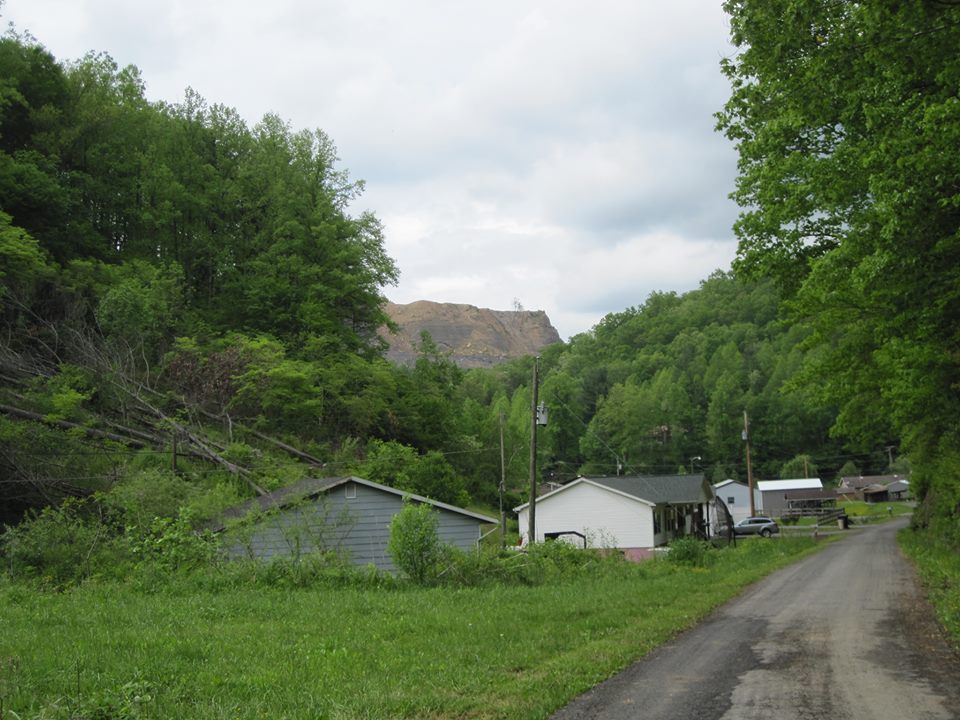The boom and bust cycles of coal markets have always worked to the advantage of coal companies more than Appalachian communities. In some of Central Appalachia’s coal-producing counties, over 90% of the mineral rights are owned by absentee owners—owners who manipulate local and state governments to keep property taxes low on their holdings. When markets are up, coal companies open mines and extract coal as quickly and cheaply as possible, often to the detriment of both miners and the environment.
When the markets are down, they idle or close their mines, file bankruptcy to get out of mine reclamation costs and/or debts to their employees (including healthcare) before finally restructuring (renaming) their corporations to prepare for the next spike in coal prices.
During these lulls in the coal markets, high unemployment rates contribute to deepening poverty in mountain communities. We witness a continued downward spiral into poverty, complete with all its many symptoms: substandard housing, depression and other mental health issues, and substance abuse. Without property tax revenues from absentee mining and land holding companies, local governments face budget crisis after budget crisis when coal severance taxes dry up. Fire departments, rescue squads, and law enforcement agencies all find themselves having to do more with less. Budget shortfalls in public education also impact the social mobility of the area’s youth, young men and women who find themselves graduating school without job opportunities or a chance of going to college. Local infrastructure continues to deteriorate, including water distribution, transportation, and waste disposal.
More problems. More misery. Fewer resources.
When the coal companies re-open their mines, communities are desperate for jobs and economic relief and the operators have no shame in taking full advantage of the situations they have left behind. This is the pattern we have witnessed for over a century. It will never change as long as there exists ownership of land and mineral rights by absentee corporate and private interests.
Every ton of high-grade Appalachian coal that is mined, sold, and shipped overseas by private corporations is another ton of coal we will no longer have in a national crisis.
The best and only option to end this struggle would be to make major reforms in the taxation of corporate mineral rights holdings within our region—reforms that would force companies to either provide the revenues we need to rebuild our communities and work toward a just economic transition we need, or force them to sell their holdings, or forfeit them back to land owners and provide them more equitable royalties for the coal the mine and additional rights regarding the means of extraction and the impact on local miners. Otherwise, the next option would be to nationalize the remaining coal reserves in Appalachia, along with all of the present mining operations. Not only would this ensure the proper oversight of coal mining, making the process safer for miners and the communities where mining occurs, but by nationalizing the coal reserves we will be ensuring our national security for generations to come. Every ton of high-grade Appalachian coal that is mined, sold, and shipped overseas by private corporations is another ton of coal we will no longer have if our nation needs it in a national crisis.
Revenues generated from government produced coal sales would be more equitably distributed to coal miners in the form of government wages and benefits. Additional revenues could be placed into funds to buffer job loss during market downturns by shifting miners from mining to reclamation and remediation work, or public projects to repair dilapidated public infrastructure.
I’m sure many will argue that such an undertaking would cost taxpayers too much money, but in truth, Appalachia’s coal reserves are not as vast as they once were. They are certainly not as vast as what our nation currently owns beneath federal lands in the west. A carbon fee and dividend could offset a tremendous amount of the cost. We did it for the auto industry and banks with the $700 billion dollar bailout of 2008, so it’s not impossible. But it will take overcoming the political corruption and economic power the coal industry has maintained over Appalachia for 120 years.
It’s either this, or we wait for the last lump of coal to be mined, then hope there will be something left for our children to rebuild.

